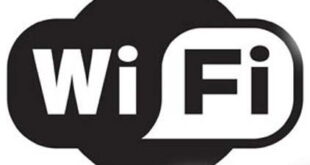Trademark lawsuit cases are not new and will definitely not be over soon, against all measures and regulations implemented by the authorities. Whether some companies simply mooch other companies’ names and easily re-adjust them for themselves, whether they are downright stealing names or abandon contracted trademarks, the legal archives are full of examples of such cases, just as it happened earlier this year with two competing companies facing a lawsuit for trademark infringement.
The court favored the plaintiff on several factors analyzed by experts and luckily for the culprit, the court decided the defendant didn’t show premeditated intent to copy the other business or to confuse the clients.

But what happens when a company does intend to confuse the customers and copy a legit business for its own profit? If you read the news, you probably heard about the man who imported and sold counterfeit Fendi bags, willingly infringing the company’s trademark. There are a lot of scammers out there and, as anyone can easily imagine, with today’s technology developments, the big battles are taking place over the Internet.
Cybersquatting is not a new concept, but for those who want to make honest business and already managed to trademark their company names under the current laws, they should know what is going on in the online business in the same time.
It is a good thing that you can find out you can trademark your own name, a logo, a word, or a username with the aid of specialized agencies, but how can you be sure your domain isn’t the subject of copycat and blackmail?
Page Contents
What is cybersquatting?
In a comprised cybersquatting definition, Cybersquatting takes place when a party registers a domain name with the intent of making profit out of the legitimate domain owner’s name or when it holds the domain hostage and intends to sell it to a domain owner for large extra sums of money.
Some examples of cybersquatting
- Using another domain owner’s name. This happens mostly with celebrity names, big companies domains and so on. For instance, in 2004, a cybersquatter got his hands on the domain spikelee.com, using the director’s name and made profit out of it redirecting good faith people towards a porn site. Spike Lee won the law suit but this is not the only thing that can happen.
- Take Microsoft for example, who found itself in the situation of having to settle out of court with cybersquatter Mike Rowe, who set up the domain MikeRoweSoft.com. Microsoft unleashed an aggressive attack on a teenager, had to settle, had to admit to being too aggressive and faced some negative publicity back in 2004, but experts say it was a necessary, calculated – wrong move, as it could have created an unwanted precedent in trademark infringement.
- The domain extension scheme is quite common these days and there are tons if cybersquatters doing it. One famous example is of Greg Lloyd Smith, who in 1998 had the brilliant idea of creating Amazon.gr (Greece) in order to build an online store which sold books, movies, gifts and so on. It didn’t take long before Amazon.com had a reaction, but what was truly criminal in this case is that Smith wrote to Amazon’s CEO announcing him about the site’s opening and the possibility of them becoming partners. This was not an isolated case and it can happen to anyone, big corporation or small business alike.
Can you defend your business from cybersquatters?
If you own a legit business and you suddenly notice things being wrong with your domain name or people asking you if you recently opened a new store in an impossible to pronounce country which has a site with your name and their extension, or if you suddenly receive a letter in which you are asked for money in return for a domain that is held hostage, you are probably dealing with a cybersquatting scheme.

You can address the Anticybersquatting Consumer Protection Act (ACPA) and sue under its provisions, although you will need a lawyer and strong nerves, as you’ll be going to court, or use the Internet Corporation of Assigned Names and Numbers (ICANN) policy referring to the Uniform Domain Name Dispute Resolution Policy (UDNDRP), which is more recommended by specialists, as it involves arbitration and not litigation. Either way, cybersquatters are something to keep very lively in mind when building and branding a company.
 Tricks Window Technology Zone – Complete Technology Package for Technology News, Web Tricks, Blogging Tricks, SEO, Hacks, Network, Mobile Tricks, Android, Smartphones etc.
Tricks Window Technology Zone – Complete Technology Package for Technology News, Web Tricks, Blogging Tricks, SEO, Hacks, Network, Mobile Tricks, Android, Smartphones etc. 


